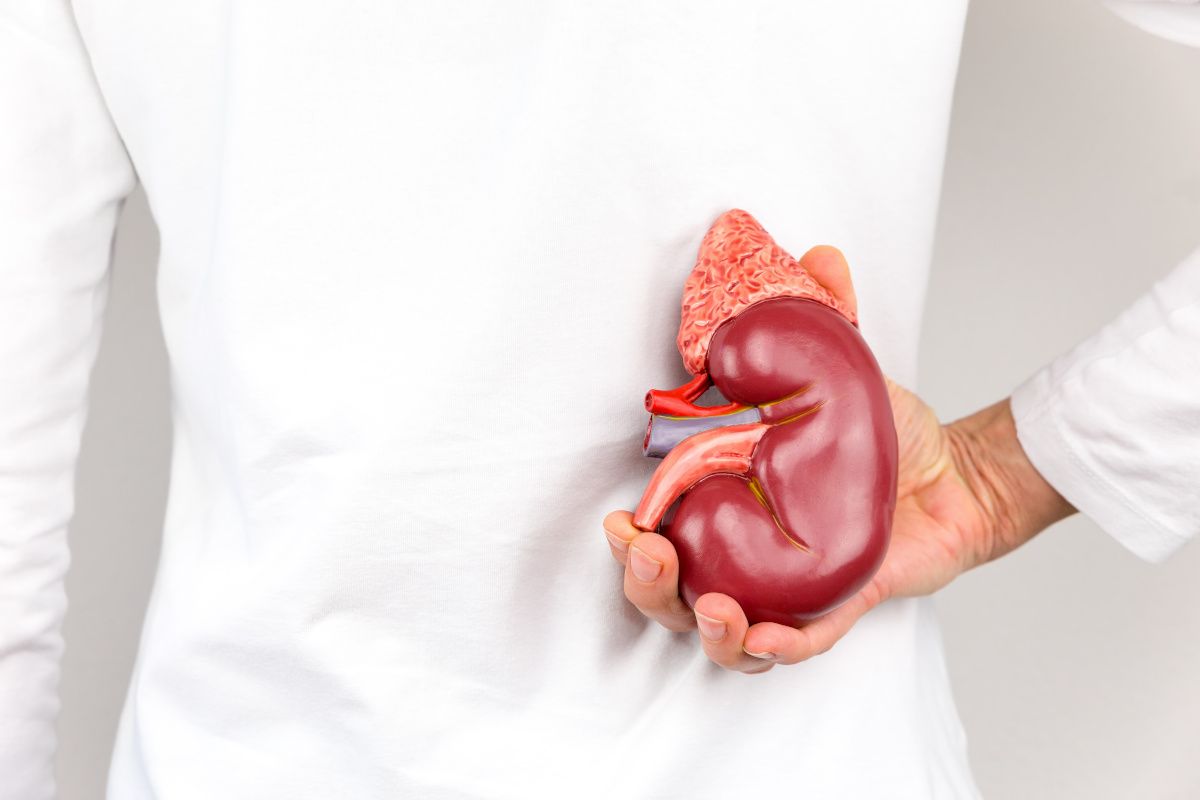Recent study finds that hemodialysis patients may benefit from higher doses of vitamin K2 supplementation in order to reduce vascular calcification
The study found that supplementation with vitamin K2 menaquinone-7 significantly reduced dephosphorylated undercarboxylated MGP in hemodialysis patients. However, the dosage did not translate to a reduction in vascular calcification.
Photo © AdobeStock.com/benschonewille

A recent study published in KI Reports1 explored the relationship between vitamin K2 supplementation and the progress of coronary artery calcification in hemodialysis patients. In the single-center randomized controlled trial, 139 patients either took vitamin K2 menaquinone-7 (MenaQ7 from Gnosis by Lesaffre) or placebo three time per week for 18 months. The primary outcome was coronary artery calcification (CAC) scores and the secondary outcomes were aortic valve calcification (AVC), carotid-femoral pulse wave velocity (cfPWV), aortic augmentation index (AIx), dephosphorylated undercarboxylated MGP (dp-ucMGP) levels, major adverse cardiac events (MACE), and vascular access events.
Results showed that change in CAC scores between the two groups was not statistically significant, but supplementation with vitamin K2 did significantly reduce dp-ucMGP levels. The researchers explain that dp-ucMGP is an accepted surrogate biomarker for vitamin K2 adequacy, and high levels of dp-ucMGP is accepted as a biomarker for vitamin K2 deficiency. Additionally, chronic kidney disease and hemodialysis patients have been shown in research to have significantly higher levels of dp-ucMGP. There is therefore a hypothesis that vitamin K2 supplementation may therefore lower dp-ucMGP levels, restore MGP function, and limit the progress of vascular calcification.
While the patients did see significant reductions in dp-ucMGP, they still had higher levels of dp-ucMGP than healthy populations. There is therefore uncertainty about how low dp-ucMGP levels need to be reduced in order to reverse severe chronic vascular calcification in patients on hemodialysis. A higher dose may therefore be required to provide a quantifiable benefit in this population.
“This study found that vitamin K2 supplementation did not attenuate vascular calcification or arterial stiffness at a dose of 360 mcg three times per week, which strongly suggests that kidney patients on dialysis would need higher doses to achieve protection benefit against arterial calcification,” said Sophie Legrain-Raspaud, Gnosis research and application director, in a press release. “There is a clear need for the optimization of vitamin K status in kidney patients, and this study is critically important in helping to understand what doses will ultimately work to provide protective cardiovascular benefits to individuals on hemodialysis. In the progress of researching an ingredient, some studies will not find a conclusive benefit due to any number of reasons. This knowledge gained helps guide future trials that could yield the hypothesized results, particularly once a beneficial dose range is pinpointed.”
“While the present study findings might be characterized as ‘unsuccessful,’ it should not hinder enthusiasm to proceed forward as this is integral to a sound exploratory scientific method,” added Marc Philouze, Gnosis by Lesaffre general manager. “Rather, the insights gained help design future trials to answer clinically highly relevant questions. The pursuit of scientific knowledge and discovery is not always so straightforward.”
Reference
- Haroon, S.; Davenport, A.; Ling, L.H.; Tai, B.C.; Teo, T.L.S.; Schurgers, L.; Chen, Z.; Shroff, R. et al. Randomized Controlled Clinical Trial of the Effect of Treatment with Vitamin K2 on Vascular Calcification in Hemodialysis Patients (Trevasc-HDK). KI Reports, 2023, 8(9): P1741-1751. DOI: 10.1016/j.ekir.2023.06.011